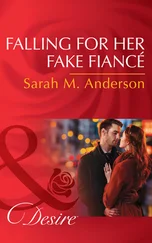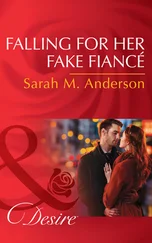Though she seemed to accept it as natural that I should remain in her company, I judged it prudent to approach the subject I wished to speak of by a slightly circuitous route. I began, since it was clearly an interest of hers, by talking of the eighteenth-century novel; from there it was an easy step to the drama of the same period; this allowed me to refer to the celebrated performance of David Garrick in the role of King Lear; having mentioned Lear, I felt able to enquire, as I hoped apparently en passant , whether Sir Robert had said anything further of his plans for retirement.
She smiled, evidently not doubting that my question showed merely a friendly interest in a subject of which she had spoken to me in some previous conversation, now unaccountably forgotten.
“Poor Sir Robert, I suppose he does feel rather like that about it — having to give up his kingdom and not knowing which of his daughters deserves to get it. But it wouldn’t really be fair, you know, to think of Mr. Albany and Mr. Bolton as anything like Goneril and Regan.”
I had no difficulty, after this, in encouraging her to go on talking about them — more freely, perhaps, than she would have done if she had not still felt embarrassed by her inability to remember who I was.
It appeared that Edgar Albany was related to Sir Robert both by blood and by marriage. His great-grandmother had been a Renfrew who had married an Albany: I gathered from Miss Tavistock’s discreet summary of the circumstances that she had done so to improve her social position. His aunt, the Chairman’s wife, was an Albany who had married a Renfrew: I gathered from an even more discreet summary that she had done so to improve her financial position.
Geoffrey Bolton’s background was less distinguished — indeed, Edgar Albany sometimes said that he had no background. He had been born, as one could tell from his accent, in Lancashire, and his parents had not been the sort of people that one expected to have heard of.
“Which of course,” said Miss Tavistock with sudden asperity, “may reflect rather well on them, because the things one hears of people for aren’t always things to be proud of, are they?”
Albany had been educated at Eton and Cambridge, where he had obtained a third-class degree in History. Bolton had not enjoyed the same educational advantages: he had attended a state school and then, Miss Tavistock thought, some kind of adult education college — he never said much about his time there and she was uncertain about the details.
“So it’s all the more to his credit, of course, that since then he’s done so well.”
Albany had been with Renfrews’ since leaving Cambridge. Bolton, for much of his life, had worked abroad. Sir Robert had met him about five years before in the course of some negotiations with an investment bank in New York and been so impressed by his abilities that he at once offered him a senior position.
Their talents were also entirely different. It was universally agreed that Bolton was brilliant at the technicalities of investment management. Albany specialised more in interpersonal skills, which of course were also very important in investment banking.
“I don’t mean,” said Miss Tavistock, “that Mr. Bolton doesn’t get on well with people. Sir Robert says that he’s a bit of a rough diamond, and he speaks his mind, of course — Northcountrymen do, don’t they? — but almost everyone likes him.”
Though she disparaged neither, I observed when she spoke of Albany that almost imperceptible tightening of the facial muscles and vocal cords which indicates dislike, or at best irritation: I suspected that she thought him an example of the failings that she had attributed to Tom Rakewell. When she mentioned Bolton, on the other hand, her voice softened and she smiled slightly; but it seemed fanciful to infer that the blunt Lancastrian had any quality which she found reminiscent of the subtle and sophisticated Vicomte de Valmont.
None of this, however, shed any light on which of them owned the black Mercedes. I cautiously ventured to enquire further about their personal circumstances.
It appeared that Albany had been married to a very charming woman, entirely suitable in every way, and had two children, but to Sir Robert’s great disappointment the marriage had ended in divorce. His wife and children now occupied the house in Norfolk which he had inherited from his grandmother, while he himself lived in a flat in central London.
Bolton had a wife, to whom he was still married, but whether she was charming or not neither Miss Tavistock nor anyone else at Renfrews’ was in any position to say. He insisted on keeping his personal and his professional life entirely separate and accordingly had never introduced her to any of his colleagues, not even to Sir Robert. Though he had a flat close to the City, where he lived during the week, his wife, so far as Miss Tavistock knew, spent all her time at their house in Buckinghamshire, which no one from Renfrews’ had ever been invited to visit. It was rather a pity, because it made people think that there must be something odd about her, something socially unacceptable.
“But probably she’s just very shy and doesn’t like meeting strangers, in which case it’s really rather nice of Mr. Bolton not to try to make her.”
The indirectness of my approach had cost some little time: Miss Tavistock was looking at her watch. After all I had learnt about the two directors of Renfrews’, I still could not think of any natural way of asking what kind of cars they owned. Not being greatly interested in motor vehicles, I could imagine no convincing reason for wishing to know such a thing. I resigned myself to disappointment.
She was a pleasant sort of woman and it would have seemed unkind to leave her in perplexity: saying that if she were at any time in Oxford she must be sure to get in touch, I wrote down for her the telephone number of St. George’s on the back of an envelope bearing my name. Her relief was perceptible: I no longer represented a nightmare of embarrassment.
We left the Museum together and I walked back with her to Lincoln’s Inn. When we reached Old Square, where she had parked the car, I saw that I had been singularly obtuse.
“What a splendid car,” I said. “A Mercedes, I believe. Does it belong to Sir Robert or to one of his co-directors?”
“Oh no, Professor Tamar, it’s a company car. We have a fleet of four of them, actually — so even when one of them’s being serviced, there’s always one available for the Chairman and each of the directors.”
“But I suppose there are differences between them?” I said a little desperately, seeing that the solution was after all about to elude me. “Surely the Chairman’s car must be grander than the others?”
“Oh no, Professor Tamar,” she said, laughing, at ease with me now that she knew my name. “We’re a very democratic organisation — apart from the licence plates, they’re all identical.”
As is the way of the Scholar when Truth proves unexpectedly elusive, I was unable to dismiss from my mind the problem I had failed to solve. Finding no escape from it in my researches in the Public Record Office, I spent the afternoon walking restlessly in the gardens of the Inner Temple, pausing but seldom for refreshment or repose. I could hardly believe, having learnt so much, that I was no nearer to knowing whether it was Albany or Bolton whom Isabella had been blackmailing.
And yet it was so. Certainly, I had now no doubt that whichever one it was had been her visitor in the black Mercedes: with four Mercedes motorcars provided by Renfrews’ Bank, it would have been logically preposterous to invent a fifth. This information, however, now seemed to count for nothing: when it was put in the balance, the scales remained equally poised.
Читать дальше












